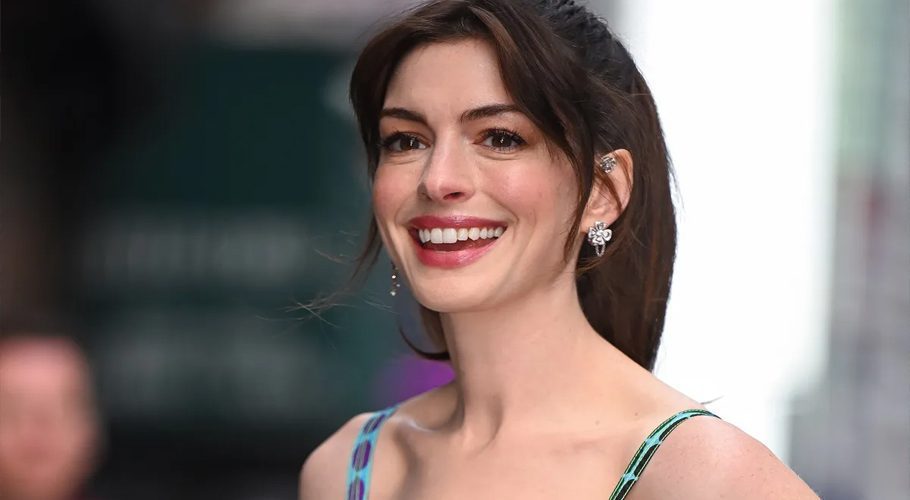Who can resist the allure of movie analogies? Anne Hathaway certainly can’t, as she aptly characterizes her latest thriller, Eileen, as a fusion of “Carol meets Reservoir Dogs.”
Explaining her cinematic concoction, Hathaway delves into the dynamic of the first half of Todd Haynes’s acclaimed 2015 lesbian love story, “Carol,” where two intriguing women dance around each other. She then segues into the twist-laden territory of Quentin Tarantino’s breakout 1992 heist film, “Reservoir Dogs,” drawing parallels between the unexpected plot turns in both movies. Hathaway expresses her appreciation for narratives that skillfully cultivate unreliable narrators, a key element in Eileen that leaves audiences questioning whom to trust in this gripping tale.
Based on Ottessa Mosfegh’s 2015 novel bearing the same title, with Mosfegh contributing to the screenplay adaptation, “Eileen” unfolds against the dreary backdrop of midwinter in 1960s Massachusetts. The central character, Eileen (portrayed by Thomasin McKenzie, renowned for her role in Debra Granik’s compelling father-daughter drama, “Leave No Trace”), is a reserved individual in her twenties employed as a secretary at a local prison. Despite enduring the verbal abuse of her alcoholic father (Shea Wigham, a standout character actor with a knack for portraying downtrodden macho figures), Eileen exhibits a peculiar loyalty to him despite his flaws.
Her life is characterized by a mundane routine, and the undeveloped Eileen, who, in the novel, emerges as an increasingly unreliable narrator prone to flights of fantasy, finds herself bored and emotionally restrained. However, the monotony takes a turn when a new prison psychologist named Rebecca (played by Anne Hathaway, exuding a chic and sensuous Hitchcock blonde vibe) enters the scene, injecting an element of intrigue and sexuality into the workplace. Eileen’s suppressed sociopathic tendencies, which she has held in check, are set free from their restraint in the presence of Rebecca.
Acknowledging her character’s cinematic influences, Hathaway discloses her exploration of Patricia Neal’s voice, particularly in a coffee commercial, during the character development process. The actress also highlights Monica Vitti as a North Star screen goddess who guided the portrayal of Rebecca.
In a departure from her signature look, Hathaway embraces a rare blonde appearance for the role, reminiscent of Hitchcock’s leading ladies.
When questioned about the covert debut of her new hair color in public, Hathaway shares her attempts to keep it low-key in an era where surprises are challenging amid constant scrutiny. Despite being content with her current appearance, she leaves the door open to future possibilities, hinting at the unpredictable nature of what lies ahead.


































